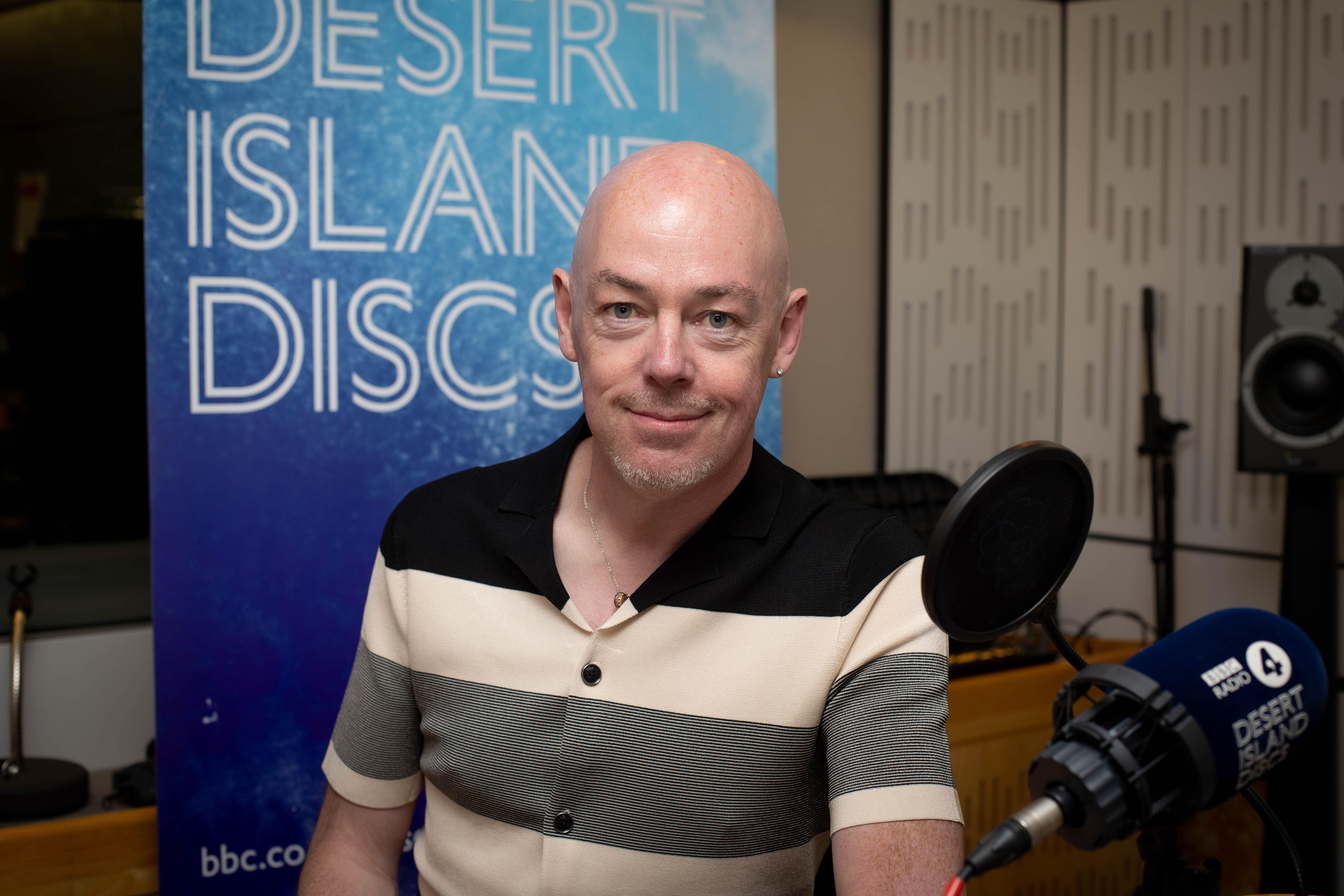The Boy in the Striped Pyjamas author: ‘If you want the facts of the Holocaust, don’t read a novel’
Author John Boyne appeared on BBC Radio 4’s ‘Desert Island Discs’ where he spoke about the criticism of his 2006 book
Your support helps us to tell the story
From reproductive rights to climate change to Big Tech, The Independent is on the ground when the story is developing. Whether it's investigating the financials of Elon Musk's pro-Trump PAC or producing our latest documentary, 'The A Word', which shines a light on the American women fighting for reproductive rights, we know how important it is to parse out the facts from the messaging.
At such a critical moment in US history, we need reporters on the ground. Your donation allows us to keep sending journalists to speak to both sides of the story.
The Independent is trusted by Americans across the entire political spectrum. And unlike many other quality news outlets, we choose not to lock Americans out of our reporting and analysis with paywalls. We believe quality journalism should be available to everyone, paid for by those who can afford it.
Your support makes all the difference.The author of The Boy in The Striped Pyjamas has pushed back against criticism of his novel, declaring that people should not read fiction if they are in search of facts.
Dublin-born writer John Boyne, 53, has come under repeat criticism from Jewish groups and historians over his 2006 children’s book, which depicts the tragic friendship of a young Auschwitz prisoner and the son of an SS officer during the Holocaust.
Boyne’s novel was adapted into a 2008 film starring Asa Butterfield (of Sex Education fame) as eight-year-old Bruno, who thinks the prisoners are wearing pyjamas and is blithely unaware of what is taking place in the camps.
“I think that the current climate that we’re living in, in publishing, is very nervous of anything that could potentially be controversial,” Boyne told BBC Radio 4’s Desert Island Discs.
“My view on that book, and I have listened to a lot of the criticism, I’ve taken it in, some of it I understand, some of it I don’t understand it, but what I feel about it is that it is a novel, it’s subtitled a fable, a work of fiction with a moral at the centre.
“It was never pretending to be anything more than that. If you want the facts of the Holocaust, don’t read a novel, read a non-fiction work.”

A study by the London Jewish Cultural Centre found that 70 per cent of readers thought it was based on a true story, and that the death of the two boys in the gas chambers of Auschwitz saw the end of the Holocaust.
Boyne’s novel has also been criticised by the Asuchwitz Museum, which has urged people to “avoid” the book.
Boyne said that in all the schools he had visited over the years, he had always made it clear to children that his book is a made-up story: “These boys did not exist. I don’t think there’s anything wrong with that.”
“The historians would say: ‘Well, you know, this should not be used as a tool in studying the Holocaust.’ Of course, it shouldn’t be,” he said. “It’s a novel, if you’re studying, use a wide range of things, read non-fiction. Again, I did not write a text book.
“The one thing I would say absolutely in my defence is a whole generation of children has grown up and read that book, and has got some insight into the Holocaust and maybe some of them have gone on and read further about it and got interested in it and that itself, I think it’s something to be proud of.”
Boyne released a sequel to The Boy in the Striped Pyjamas, titled All the Broken Places, in 2022, to mixed reviews.

In the same interview, he spoke about how the teacher he alleges abused him at Terenure College died in October in his eighties, calling it a “strange moment”, as he never went to trial.
The author said the thing that “really” upset him was, unlike his being a writer, the teacher’s other victims would not experience the “catharsis” of telling their stories.
Boyne called abuse at Terenure “routine” and claimed there was “definitely a culture of violence in the school”. He also mourned the loss of “community spirit” he said had been present when Ireland was more religious.
“It’s such a tragedy that that has been lost, really, because of all the things I mean, have gone on over the years and because of the revelations that really have come out since about 2000, in Ireland,” he said.
“And I remember when I was writing A History Of Loneliness, interviewing the parish priest, and who was kind of telling me that they don’t have altar boys or altar girls, even, any more.
“They just can’t take the risk of that because it’s just not worth the risk and there’s a sadness to that, I think.”
Additional reporting by Press Association
If you are a child and you need help because something has happened to you, you can call the NSPCC free of charge on 0800 1111. You can also call the NSPCC if you are an adult and you are worried about a child, on 0808 800 5000. The National Association for People Abused in Childhood (Napac) offers support for adults on 0808 801 0331
